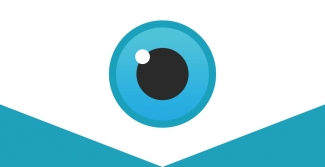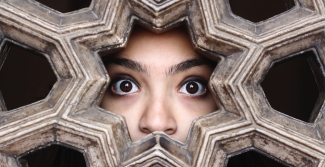21 myths about your eyes
Until the day comes when we can all jump into our time machines and travel back to confirm historical facts, we must rely on documentation and artifacts which have managed to withstand the tests of time. Although we can use these clues to piece together what we think really happened, we can still only guesstimate certain data to build a picture of the full truth.
So even after all our searching and fact finding, certain stories remain frayed around the edges; with exaggerations and imaginations running riot, events soon mutate into mythical tales that never truly existed.
This is why you can be forgiven for thinking that Edison invented the light bulb, or that Lady Godiva rode naked through the streets of Coventry on horseback. These common myths are just some of the examples of how stories can end up as fumbled fables.
Here is a compelling list of the 21 greatest myths that surround the human eye. Read on, and the next time your friends insist they know the truth, you can politely smile and advise them otherwise.

Photo by Ajeet Mestry on Unsplash
1. Square eyes
“You’ll get square eyes sitting that close to the screen!” While sitting too close to the television won’t actually make your eyes go square, or necessarily damage them, if you find this is a regular habit you may need to visit your optician.

Photo by Kate Williams on Unsplash
2. Reading in the dark
Reading in dim light won’t harm your eyes, but it can put strain on your eyes through slowing down the blink rate.

Photo by skeeze on Pixabay
3. Crossing your eyes
Crossed eyes are a result of nerve damage, and not a defect you can get from moving your eyes into the crossed position for long periods, no matter how many times you pull a funny face.

Photo by Mink Mingle on Unsplash
4. Eating carrots
Unfortunately, no matter how many carrots you eat, you won’t be able to see in the dark. However, carrots do contain a large amount of vitamin A, which is great for helping to protect the cornea.

Photo by sweetlouise on Pixabay
5. Sneezing with your eyes open
Closing your eyes is a natural reflex when you sneeze, although no one is quite sure why. But some people can actually sneeze with their eyes open! So, there’s no danger of your eyeballs popping out, thankfully.

Photo by Skitterphoto on Pexels
6. Wearing your eyes out
Your eyes are designed to be used, and nothing will wear them out. Just as your nose won’t get bored of smelling, and your ears won’t grow tired of listening.

Photo by Joshua Newton on Unsplash
7. Wearing someone else’s glasses
Go ahead and try on as many of your friend’s glasses as you like: your eyes won’t be affected. But your friends might find it a bit annoying. If you have perfect vision, do try to avoid wearing extremely strong prescriptions for long periods, as they could potentially give you a nasty headache.

Photo by Wes Hicks on Unsplash
8. Blind people live in total darkness
People who are legally blind are defined as failing to meet 20/200 vision, this means that blind people don’t see pure darkness. In fact, most will have some form of vision, but those who don’t simply see nothing at all.

Photo by Victor Freitas on Unsplash
9. Eye exercises
Contrary to what many people think, eye exercises can’t improve your vision, although vision training can help against eye muscle problems such as eye misalignment, known as strabismus. However, no amount of eye aerobics will repair near or farsightedness. Sorry!

Photo by rawpixel on Unsplash
10. Eye transplants
Whole eye transplants might sound like a great idea, but unfortunately, they only exist in the dreams of Hollywood directors and in galaxies far, far, far away. We can do corneal transplants, however, which can help to restore people’s sight. Pretty cool, don’t you think?

Photo by fotografierende on Unsplash
11. Corrective contacts only
Most people can wear contact lenses – not just those who have corrective issues. You will need to get the right measurements from an optometrist, but then you can jazz up your eyes with all the colours of the rainbow.
Photo by Michael Mims on Unsplash
12. Contact lenses for children
Children can wear contact lenses. In fact, children as young as just 8 years old have been known to wear corrective lenses without any damage to their eyes. However, you should always consult your optician beforehand.

Photo by Josh Calabrese on Unsplash
13. Wearing glasses will make your eyes get worse
Wearing glasses won’t weaken your eyes or make you dependent on vision correction. They are simply vision aids to give you clearer, better sight.

Photo by Everton Vila on Unsplash
14. Too much ‘romance’ will make you go blind
This is a myth. We needn’t say any more about it!

Photo by Levi Alvarez on Unsplash
15. 20/20 vision
20/20 vision simply means you have good central vision, it doesn’t mean that you can see perfectly. There are other defining factors to be considered, such as peripheral awareness, eye co-ordination, colour vision, focusing ability and depth perception.

Photo by RhondaK Native Florida Folk Artist on Unsplash
16. Colour blindness
Being colour blind doesn’t mean you see in black and white, it just means that you can’t differentiate between certain colours. Difficulty distinguishing between red and green, or blue and yellow are the two most common problems.

Photo by Frank Marino on Unsplash
17. Squinting hurts your eyes
Squint until the cows come home if you really want to - it won’t affect your vision. However, if you find that you need to squint to see more clearly, you might need to visit your optician.

Photo by Tiago Muraro on Unsplash
18. Cataracts only affect older people
50% of all 50-year-olds will develop cataracts later in their life; however, people of any age that suffer a blow to the eye or have diabetes can just as easily get cataracts.

Photo by Lefty Kasdaglis on Unsplash
19. Looking at the sun won’t damage your eyes
Looking directly into the sun without fully UV protected sunglasses will damage your eyes, as the intense light emitted by the sun damages the cells in the cornea. Practice safe sunbathing!

Photo by Ben Kolde on Unsplash
20. Using computers will damage your eyes
Using a computer will not damage your eyesight. But using computers does slow down your blink rate and can result in dry eyes. For some top tips, read our article on how to avoid digital eye strain.

Photo by Erik Nielsen on Unsplash
21. Your eyes never grow
Your eyes continue growing throughout your lifetime, starting out at about 18.5mm at birth and growing to approximately 25mm by the time you reach adulthood.
Enjoyed our 21 eye myths? Take a look at our 10 myths about contact lenses.









